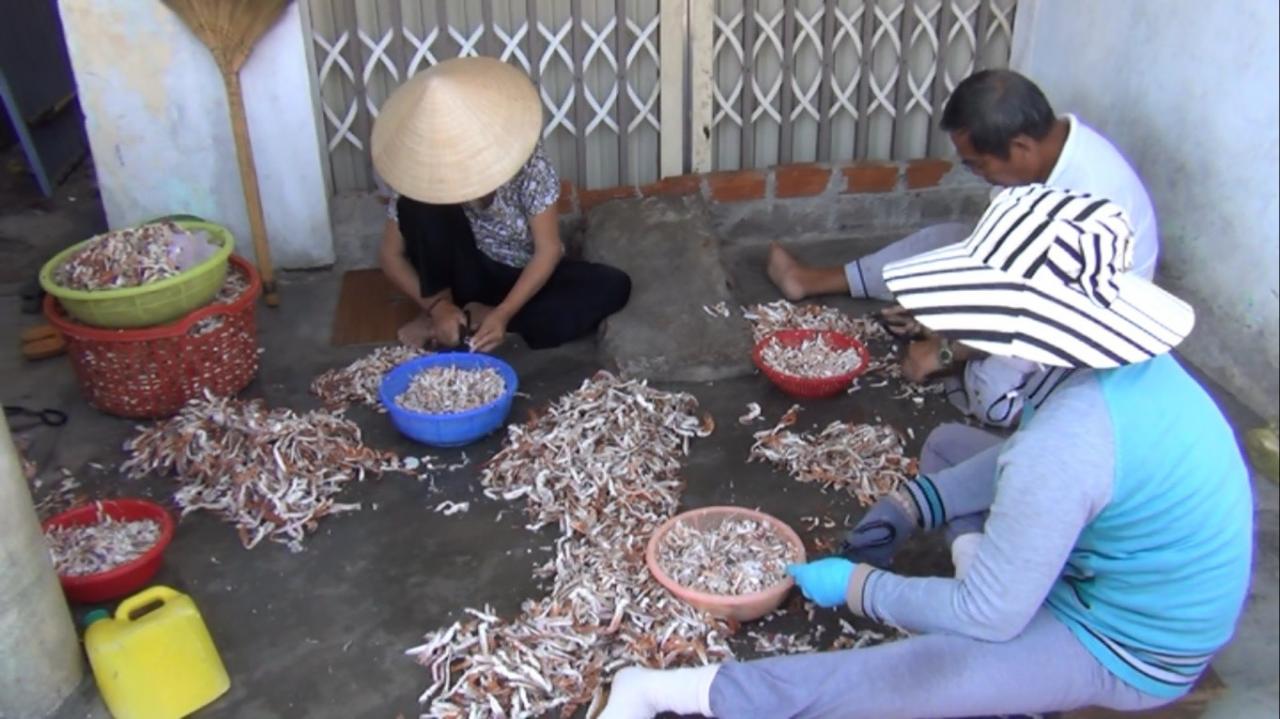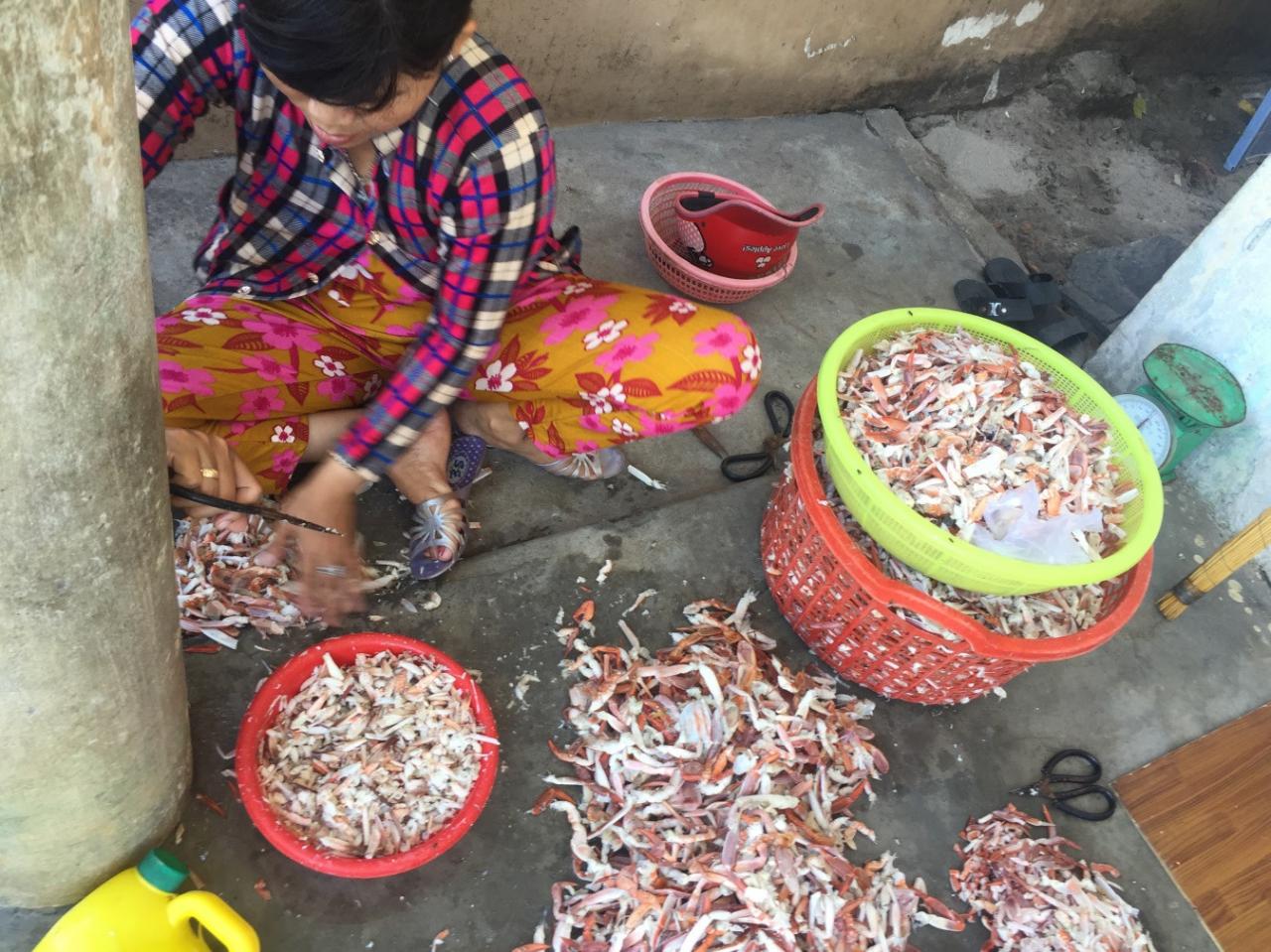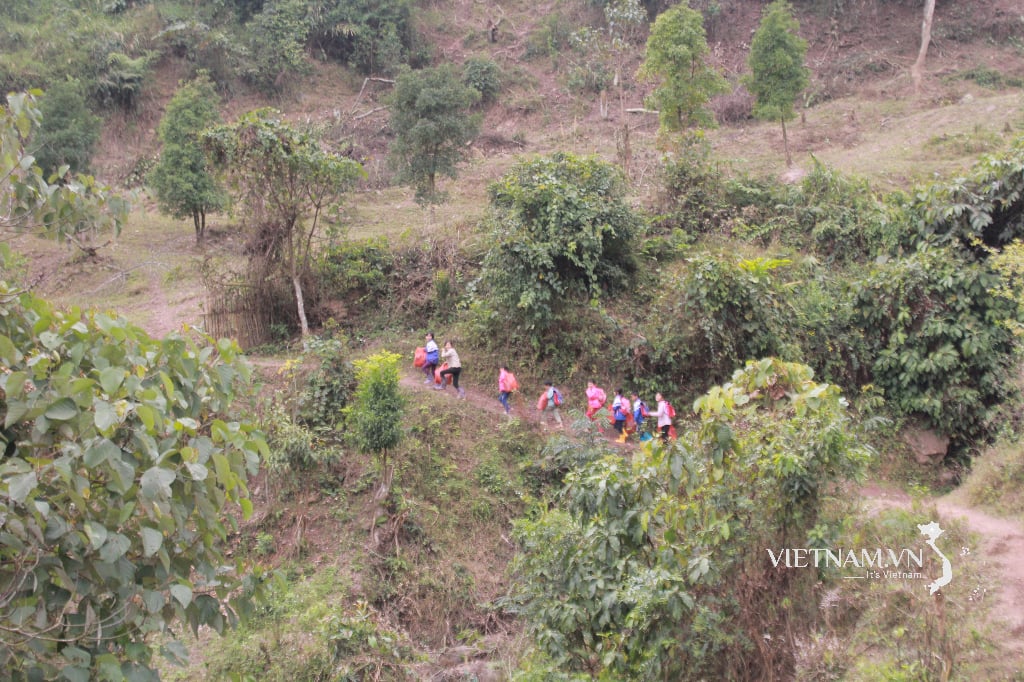Phuoc Loc Ward is a coastal ward of La Gi town. The majority of its residents primarily live off the sea. A small percentage of them make a living from occupations related to the sea and seafood trading. Among these occupations is the business of separating the meat from the claws of crabs to supply to restaurants and eateries. This profession is often simply called the "crab" business.

Typically, crab harvesting is done in groups of 4-5 people. At first glance, it seems simple, but doing it requires nimble hands and good physical stamina, as they have to sit for long periods. They start working from the moment the boat docks until the last crab claws are separated. Extracting the meat from the claws involves many steps: receiving the claws from the boat owners, steaming them, and then separating the meat. Overcooking wastes the meat, while undercooking makes it difficult to work. Every step requires meticulousness and hard work. It is known that this is the main livelihood for many families in Phuoc Loc ward, La Gi town. Many residents have been involved in this work for decades.

Ms. Huynh Thi Yen Xuan, residing in Ward 3, Phuoc Loc Commune, La Gi Town, shared: “Ready-to-eat crab meat is popular with restaurants and eateries, and the ‘crab’ business was born from that reason and has been maintained and developed until now. I myself have been doing this job for over 20 years, and I will try to stick with it to support my children's education and cover various family expenses.”
It is known that the job of shucking crab claws for hire provides regular work, almost every day. Usually, early in the morning, the women receive dozens of kilograms of crab claws from the boat owners. Those who work more earn more money; for each kilogram of crab meat separated from the claws, the worker is paid 50,000 VND/kg.”
With nimble hands, many women in Phuoc Loc ward, La Gi town, continue to work in the "crab harvesting" profession day after day to provide their children with a proper education through their own labor.
Source



































![[Photo] A large number of people offer incense and visit the Ho Chi Minh Memorial Church.](https://vphoto.vietnam.vn/thumb/1200x675/vietnam/resource/IMAGE/2026/02/21/1771668099014_ndo_br_12-resize-7721-jpg.webp)








































































Comment (0)